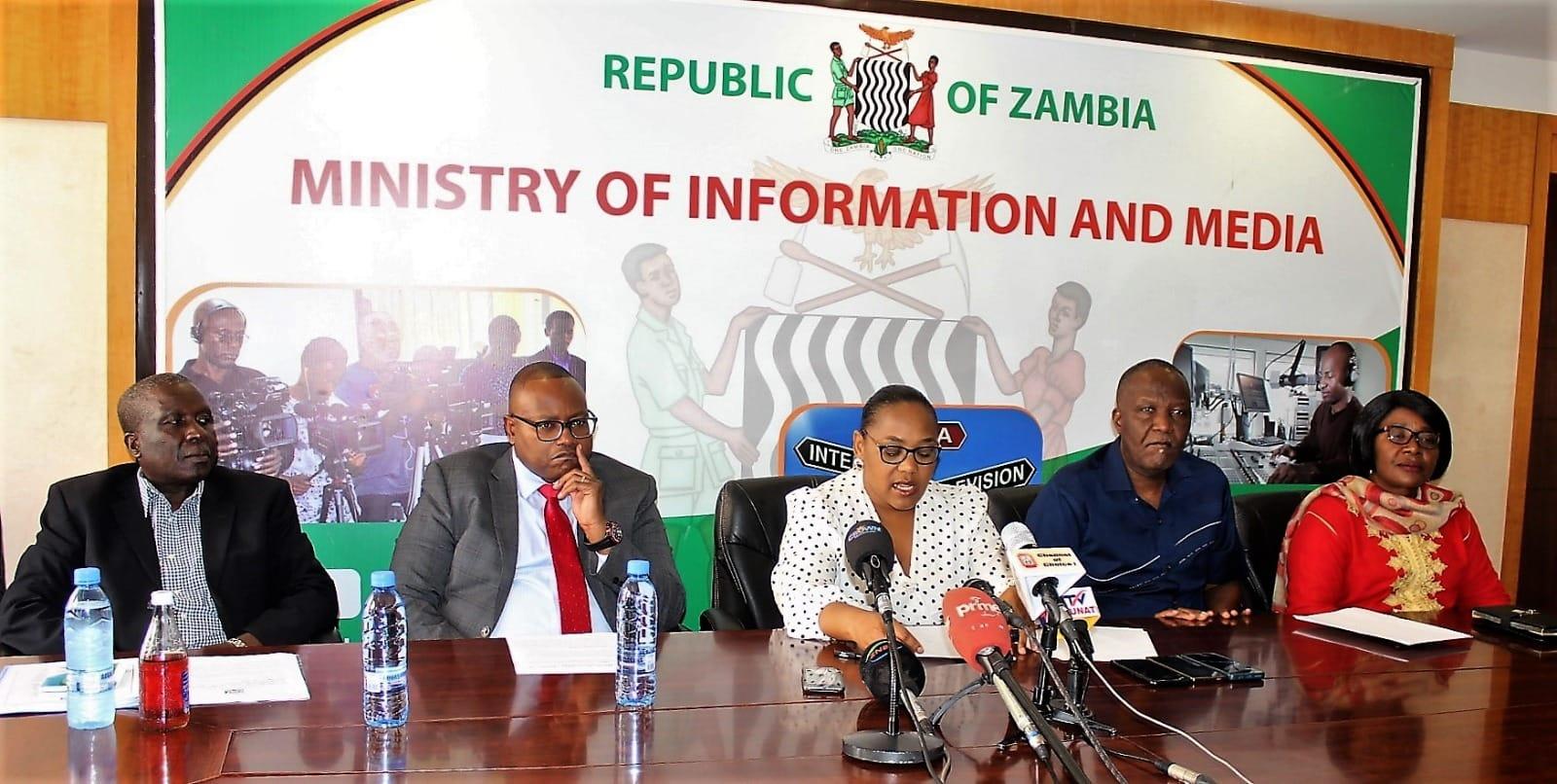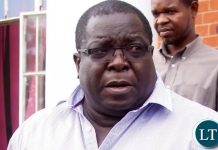Africa-Press – Zambia. Hon. Chushi Kasanda, MP, the Minister of Information and Media, and Chief Government Spokesperson and other ministers held a press briefing today, addressing various issues concerning the President’s recent visit to the 36th Ordinary Session of the Assembly of the African Union in Addis Ababa, Ethiopia.
Minister Kasanda began by informing the media that President Hakainde Hichilema is holding bilateral talks with fellow heads of state and government, as well as conducting meetings with various business leaders and cooperating partners to push for the transformation agenda for Zambia and the African continent as a whole. She also highlighted the President’s meeting with the President of the Democratic Republic of Congo, His Excellency Félix Antoine Tshisekedi, where they discussed resolving challenges at the Kasumbalesa Border Post.
“The meeting was centered around resolving the challenges at the Kasumbalesa Border Post. The two leaders have agreed that operations at the border are quickly improved to accelerate the conveyance of goods between our two countries without losing much time,” said Minister Kasanda.
She also reassured the nation that the President is busy marketing Zambia and unlocking rigidities, and there are many positive sentiments coming through from Addis Ababa. Minister Kasanda then dispelled false claims circulating on social media platforms that the President makes decisions of national importance single-handedly without consulting.
“There is a well-laid down decision-making procedure in the new dawn government. First and foremost, as a nation, we have a shared vision, which we call the Vision 2030; secondly, we have the UPND Manifesto; then we have national policies; and finally, we have Cabinet,” said Minister Kasanda.
She went on to elaborate on the decision-making process. The country has a Vision 2030 through which it aspires to be a prosperous middle-income nation by 2030. The UPND Manifesto is anchored on the Vision 2030, and the President is the Chief Vision Carrier for Zambia.
“When a political party forms the Government, its policy pronouncements as outlined in their Party Manifesto are translated and actualized through national policies. The formulation of these national policies begins in respective Ministries under the leadership of each respective portfolio Minister,” said Minister Kasanda.
She further explained that national policies are implemented by various public, private, and non-state actors, and are formulated through a broad consultative process. The stakeholders that are normally consulted include civil society organizations, faith-based organizations, academia, civic and traditional leaders, business and technical experts, professional bodies, and the community, among others.
“National Development Plans such as the 8NDP are derived from national policies. The preparation of National Development Plans is undertaken through a wide consultative process involving various stakeholders at community, district, provincial, and national levels. At the national level, National Development Plans are approved by Parliament,” said Minister Kasanda.
Regarding the decision-making process by Cabinet, Minister Kasanda explained that one of the functions of Cabinet is to approve and cause to be implemented Government policy. Cabinet meetings are convened to consider policy recommendations presented by the respective Ministers under whose portfolio function the subject matter falls.
“The final decision on the proposal is made through consensus. When the decision has been made by Cabinet, all Members are bound by the principle of Collective Responsibility, in accordance with Article 114 (2) of the Constitution. This entails that all Ministers own the final decision arrived at in Cabinet. The policy decisions of Cabinet are, therefore, not made by an individual Minister but rather by the entire Cabinet,” said Minister Kasanda.
Minister Kasanda urged the media and the public to understand and appreciate the decision-making process in the new dawn government. She also encouraged them to desist from spreading false information about the President and his government without proper verification.
For More News And Analysis About Zambia Follow Africa-Press







